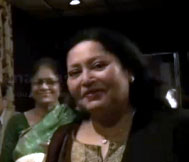 Ask a Bengali what in his/her bookcase does he/she treasure most? And the answer will be – the sixteen volume set of Rabindra Rachanabali, that is, the complete works of Rabindranath Tagore. Over the years, the works of Tagore has been one of the key source of revenue for Bishwabharati. However, after the expiry of the extended copyright, publishers were free to reprint Tagore without having to pay any royalty to Bishwabharati. The Society for Natural Language Technology Research (SNLTR) grabbed this opportunity and made the entire published works of Tagore (Rabindra Rachanabali) available online through their website http://rabindra-rachanabali.nltr.org. No longer do you have to carry along with you the heavy volumes, neither do you have to spend money to buy them. Online Rabindra-Rachanabali is free. The website was released to the public on 27th January 2010, at the Kolkata Bookfair. Continue reading
Ask a Bengali what in his/her bookcase does he/she treasure most? And the answer will be – the sixteen volume set of Rabindra Rachanabali, that is, the complete works of Rabindranath Tagore. Over the years, the works of Tagore has been one of the key source of revenue for Bishwabharati. However, after the expiry of the extended copyright, publishers were free to reprint Tagore without having to pay any royalty to Bishwabharati. The Society for Natural Language Technology Research (SNLTR) grabbed this opportunity and made the entire published works of Tagore (Rabindra Rachanabali) available online through their website http://rabindra-rachanabali.nltr.org. No longer do you have to carry along with you the heavy volumes, neither do you have to spend money to buy them. Online Rabindra-Rachanabali is free. The website was released to the public on 27th January 2010, at the Kolkata Bookfair. Continue reading
Category Archives: Generic
NABC 2010: Abdul Bari Siddiqui – The Flutist Baul
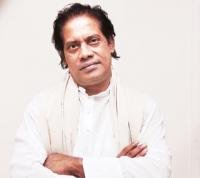 One of the guest performers at the upcoming NABC 2010 is Abdul Bari Siddiqui of Dhaka, Bangladesh. Although Bari is a relatively new name to the Bengali music lovers in this part of the world, he is a well known and sought after musician and composer in Bangladesh. Trained as a classical flutist, Bari finds his passion both in the classical ragas as well as the folk tunes and Baul music of Bengal and has created his own genre of folk fusion by fusing North Indian Classical Music with Baul music. Bari (born 15th November 1954) started his initial lessons in classical vocal music at the age of twelve under Gopal Dutta of Netrokona. Later, in 1981, he was taken under the wings of Ustad Aminur Rahman, a direct disciple of Pandit Panna Lal Ghosh, the famous flutist, and Beenkar Ustad Dabir Khan. Ustad Aminur Rahman spotted Bari during a concert, and offered to tutor him. For the next six years Bari trained under Rahman. Bari also received extensive training from Pandit V G Karnad in Pune. Since 2000, besides playing the flute, Bari started to perform vocal music and his first album “Srabon Megher Din” was an instant hit and won him several awards.
One of the guest performers at the upcoming NABC 2010 is Abdul Bari Siddiqui of Dhaka, Bangladesh. Although Bari is a relatively new name to the Bengali music lovers in this part of the world, he is a well known and sought after musician and composer in Bangladesh. Trained as a classical flutist, Bari finds his passion both in the classical ragas as well as the folk tunes and Baul music of Bengal and has created his own genre of folk fusion by fusing North Indian Classical Music with Baul music. Bari (born 15th November 1954) started his initial lessons in classical vocal music at the age of twelve under Gopal Dutta of Netrokona. Later, in 1981, he was taken under the wings of Ustad Aminur Rahman, a direct disciple of Pandit Panna Lal Ghosh, the famous flutist, and Beenkar Ustad Dabir Khan. Ustad Aminur Rahman spotted Bari during a concert, and offered to tutor him. For the next six years Bari trained under Rahman. Bari also received extensive training from Pandit V G Karnad in Pune. Since 2000, besides playing the flute, Bari started to perform vocal music and his first album “Srabon Megher Din” was an instant hit and won him several awards.
Kolkata Theater : A Personal Snapshot
After a gap of two years I was back again in Kolkata this winter and whenever I had some spare time, I utilized it watching a theater. Although most people in Kolkata were flocking the multiplexes for “3 Idiots” or “Avatar”, I thought it would be prudent to capture as many Bengali plays as possible since I won’t be able to see them back in New Jersey. The day I landed in Kolkata also happened to be the opening ceremony of Nandikar’s National Theater Festival, and Satya-da (Satya Bhaduri, editor of the theater magazine SAS) invited me to attend the show with him. That evening, the festival opened with Bangladesh Dhaka Drama’s staging of Selim-al-Din’s “Dhabaman”. “Dhabaman” is an allegorical folk tale of a young buffalo who wanted to be free. The play was presented in a traditional folk form with elaborate choreography and physical acting. This kind of play does not depend on traditional dialogues but on descriptive narratives which works almost like a commentary of the happenings on stage. It was a pleasant experience overall, especially when you get to watch a play in a form that is rarely used in Bengali theater these days. Continue reading
NABC 2010: Sahaj-Ma and Utpal Faqir
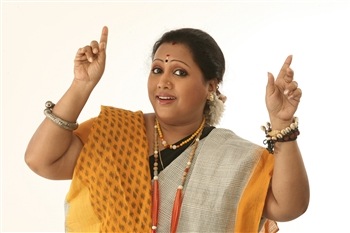 Few months ago, I wrote my wish list about the kind of performers I’d like to see at the 2010 NABC in Atlantic City, and the one artist I mentioned specifically was Sahaj-Ma. When NABC 2010 committee announced the name of their foreign performers, I was delighted to see Sahaj-Ma and Utpal-Faqir’s name on the list. I am not sure whether the committee members actually read my post and felt inspired to invite the duo, or whether it was a sheer co-incidence – I am glad and thankful to the decision makers for giving us a chance to watch these amazing performers on stage.
Few months ago, I wrote my wish list about the kind of performers I’d like to see at the 2010 NABC in Atlantic City, and the one artist I mentioned specifically was Sahaj-Ma. When NABC 2010 committee announced the name of their foreign performers, I was delighted to see Sahaj-Ma and Utpal-Faqir’s name on the list. I am not sure whether the committee members actually read my post and felt inspired to invite the duo, or whether it was a sheer co-incidence – I am glad and thankful to the decision makers for giving us a chance to watch these amazing performers on stage.
I heard Sahaj-Ma first on ETV-Bangla on a show called “Baranday Roddur” conducted by the famous Bangla Band Bhoomi. It was kind of a mix of a musical and talk show, and Sahaj-Ma mostly talked about her musical journey. She mentioned about her early training in classical music from her mother and then from Pundit M.R. Gautam and Srimati Sunanda Pattanaik. And when she performed, it was mesmerizing. She has a unique style and tonal quality that is very rare in a female Bengali singer. The next time I listened to her music was in another ETV-Bangla show, “Dada Didir Ganer Lorai”. In this show, whenever she went up to perform, it was almost magical. Although she mostly performs Baul and folk songs, but in this show she proved that she has mastery over all forms of Indian music. Continue reading
Countdown to NABC 2010
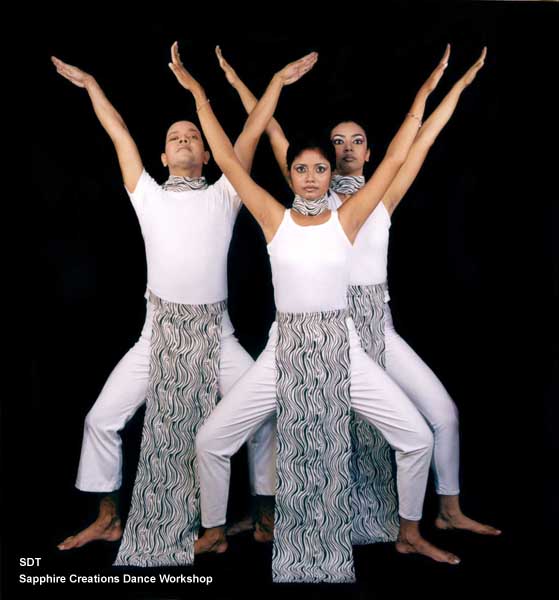 The count down to NABC 2010 has started. In little more than seven months from now, Bengalis from all over USA and abroad will converge upon Atlantic City in New Jersey. Kallol of New Jersey, the host organization of NABC 2010, is working at a hectic pace to make it a great event. Most of the performers have been lined up, registrations pouring in and the committee members are busy working on the final details like scheduling and fund raising. On January 8th, 2010, a kickoff meeting/press-conference will be held in Kolkata in the presence of most of the artists and performers.
The count down to NABC 2010 has started. In little more than seven months from now, Bengalis from all over USA and abroad will converge upon Atlantic City in New Jersey. Kallol of New Jersey, the host organization of NABC 2010, is working at a hectic pace to make it a great event. Most of the performers have been lined up, registrations pouring in and the committee members are busy working on the final details like scheduling and fund raising. On January 8th, 2010, a kickoff meeting/press-conference will be held in Kolkata in the presence of most of the artists and performers.
Lets take a look at some of the foreign performers who will grace the Atlantic City convention center stage. I’ll not be able to cover all of them in this article and plan to continue in future posts. At the 2010 NABC Kallol will be presenting some performers who are relatively unknown to the Bengali crowd in USA. One such group is Sapphire Creations Dance Workshop who will be performing at the opening ceremony. Sapphire Creations is a premier experimental dance company based in Kolkata and the only one of its kind in Eastern India performing regularly and popularly in festivals and arts events in India and abroad. Their objective is to integrate in its dance an awareness of tradition, a dimension of experimentation, an urge to entertain and a purpose to provoke consciousness to inspire us to reach brighter horizons. Continue reading
The Green State Dinner
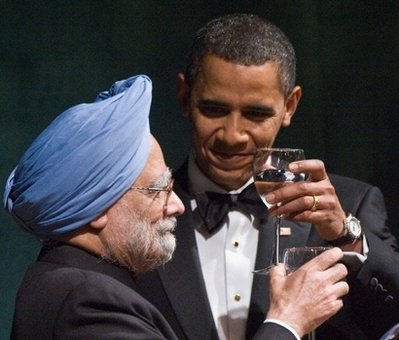 On November 24th, 2009, President Barack Obama hosted the first state dinner, since his inauguration, in honor of Dr. Manmohan Singh, the honorable Prime Minister of India and his wife Mrs. Gursharan Kaur. State dinners honoring foreign head of states are huge events and are attended by members of the top echelon of the society. The official White House fact sheet says:
On November 24th, 2009, President Barack Obama hosted the first state dinner, since his inauguration, in honor of Dr. Manmohan Singh, the honorable Prime Minister of India and his wife Mrs. Gursharan Kaur. State dinners honoring foreign head of states are huge events and are attended by members of the top echelon of the society. The official White House fact sheet says:
The first State Dinner for a foreign head of state was held by President and Mrs. Ulysses S. Grant on December 12, 1874 for King David Kalakaua of Hawaii.
Since that first dinner, many traditions have been added to State and Official Visits – yet the common theme of forging friendships, exchanging knowledge and building bridges that last for years to come remain unchanged.
As the world’s two largest democracies, India and the United States share common ideals and strengths, and the United States and India are working together to address a number of global challenges of the 21st Century—from security to the economy to climate change to the health and education of our people. Continue reading
(Un)Availability of Desh Patrika in USA
I have been an ardent reader of “Desh”, the premier Bengali literary magazine since my childhood days. As I moved to the US, I continued my subscription through the “House of Ananda”, a New York based agency of ABP (Ananda Bazar Publications). I could pay my subscription dues using a credit card or via Paypal through their website. I used to get the magazine regularly and in time. However, recently due to some mysterious reasons, the US based distribution ceased to exist and the magazine is now mailed directly from Kolkata. This resulted in two issues. First, the magazine delivery became irregular and I missed few issues which I guess was lost in the mail. The delivery is also delayed. Secondly, the subscription process has become really complicated and ABP now demands the payment to be sent to their Kolkata office in the form of DD. This is totally unacceptable in current times. Technology has evolved and the days of demand drafts and money orders are long gone in the global market. I recently purchased a book from an Indian distributor who accepted credit card payment through their website and mailed me the book in less than two weeks. Why can’t a huge publication house like ABP do this? Bengalis now live all over the world, and publishers and book sellers like ABP should cater to their international clientele using modern technology. An email sent to the ABP office had no positive effect. Publishers like ABP should learn a lesson or two from their international counter parts. Magazine publishers in USA use all kinds of methods to hold on to their subscribers. They try to make the subscription renewal process as painless as possible. Where as, publishers like ABP seem to be happy to lose a few customers. To manage the loss of readership, all they can do is reduce the frequency of publication to monthly and then maybe to quarterly. That’s what they did when the reduced the frequency from weekly to fortnightly.
I hope, ABP comes to their senses and reinstates their foreign distribution centers and try to expand their business to the Bengalis living abroad.
Loss of a Friend
Three months ago, when I lost my mother, I received the following email from a close friend:
The email was from Gayatri Gamarsh (who allowed me to call her as Gayatri-di) and it really helped me cope with my pain. Little did I know that three months later, Gayatri-di herself will move on to “her after-life” leaving us behind mourning her loss.
I came to know Gayatri-di mainly through her literary works and her love for anything artistic. She used to love coming to our plays and appreciated them very much. Several times she has written about our plays in Anandasambad and other magazines. Her appreciation and encouragement meant a lot to me and my team mates. It is for people like Gayatri-di that makes all the hard work in writing and staging a play worth it.
In September, she had participated in a workshop on creative Bengali writing conducted by Sunil Gangopadhyay. She had rescheduled her heart surgery just to attend this workshop online. That was the last time I had heard her voice on the phone. Later, after her surgery, she had sent me an email asking for an article or cartoon for the “Sambad Bichitra” English section. But I never had the chance to hand it to her.
As mentioned by Gayatri-di in her email, I’ll believe that she is always with us and will be watching any play we put up or read any article I write or any cartoon I draw.
Goodbye Gayatri-di and thank you for all your encouragement and blessings, for those will be my source of inspiration for whatever I do in the future.
NJ Independent South Asian Cine Fest 2009: A Brief Report
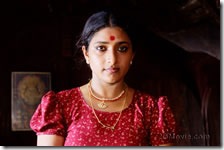 The three day long 3rd Annual New Jersey Independent South Asian Cine Fest (NJISACF) concluded on Sunday, October 11, 2009 at the Rutgers Busch Campus Student Center. The festival does not have the clout that some of the other major films festivals around the World enjoy, but it is gradually gaining in momentum. The festival does not boast of stars and glitterati, but is more focused on quality films made by artists of South Asian descent. This year, the festival showcased around 25 films including full length features and shorts that highlighted the best works of some young and promising film makers as well as veterans like Adoor Gopalakrishnan. I, however, was able to watch only a handful of films and I’ll discuss those in this ‘attempt of a report’ of mine. I would like to welcome the readers who attended the festival to comment on the films they watched.
The three day long 3rd Annual New Jersey Independent South Asian Cine Fest (NJISACF) concluded on Sunday, October 11, 2009 at the Rutgers Busch Campus Student Center. The festival does not have the clout that some of the other major films festivals around the World enjoy, but it is gradually gaining in momentum. The festival does not boast of stars and glitterati, but is more focused on quality films made by artists of South Asian descent. This year, the festival showcased around 25 films including full length features and shorts that highlighted the best works of some young and promising film makers as well as veterans like Adoor Gopalakrishnan. I, however, was able to watch only a handful of films and I’ll discuss those in this ‘attempt of a report’ of mine. I would like to welcome the readers who attended the festival to comment on the films they watched.
Another Raman Wins Nobel Prize in Chemistry
 Once again an Indian (or person of Indian origin) wins the Nobel prize. Dr. Venkatraman Ramakrishnan was awarded the 2009 Nobel prize in chemistry for his research on ribosomes. It was in 1930, another Raman, Dr. Chandrashekhar Venkata Raman (popularly known as C. V. Raman) won the Nobel prize in Physics.
Once again an Indian (or person of Indian origin) wins the Nobel prize. Dr. Venkatraman Ramakrishnan was awarded the 2009 Nobel prize in chemistry for his research on ribosomes. It was in 1930, another Raman, Dr. Chandrashekhar Venkata Raman (popularly known as C. V. Raman) won the Nobel prize in Physics.
Dr. Venkataraman (of the MRC Laboratory of Molecular Biology in Cambridge, England) won the award along with Dr. Thomas A. Steitz of Yale University, and Dr. Ada E. Yonath of the Weizmann Institute of Science in Rehovot, Israel.
Dr. Venkatraman was born in Chidambaram, Tamil Nadu, India, in 1952 and obtained his Ph.D. at Ohio University, and holds American citizenship.
For further details, visit http://nobelprize.org/nobel_prizes/chemistry/laureates/2009/index.html

